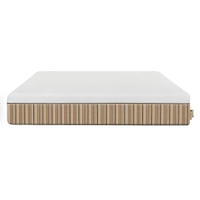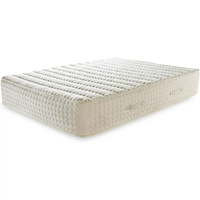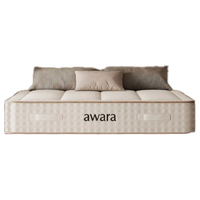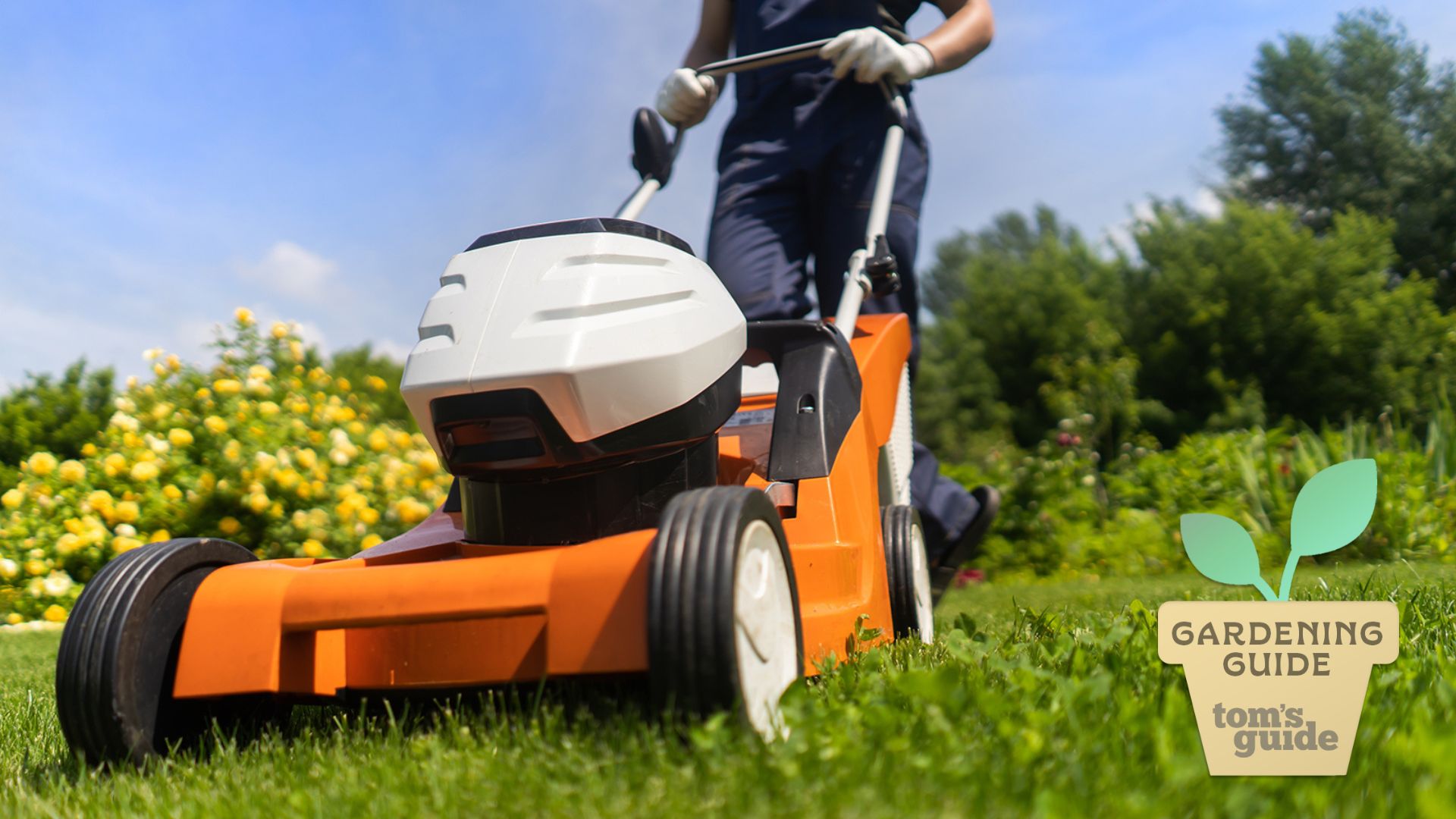4 reasons you should swap your old bed for an organic mattress in 2025
Remove toxic chemicals from your sleep environment with an organic mattress
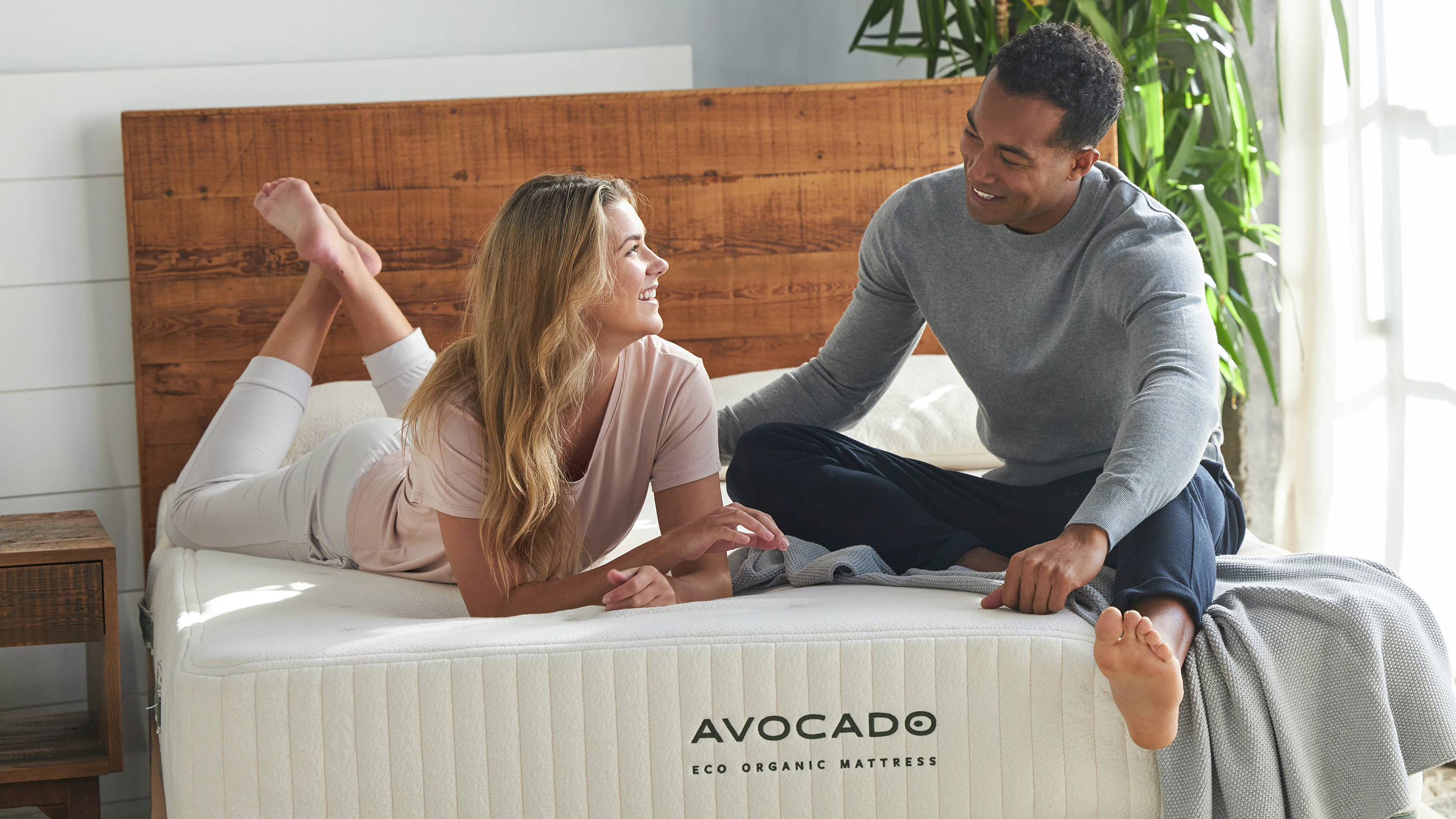
As more and more shoppers are looking to ensure their investments and purchases are sustainable and ethical, organic mattresses are having a moment. And for good reason. After researching the kind of chemicals that go into many mattresses, I decided to swap my old bed with an organic mattress, and now I’d never go back to a traditional mattress again.
Even this year’s best mattresses often use chemical-based materials, like memory foam. While this doesn’t make the bed itself toxic, many people question the process of creating these materials, the waste associated with them and the safety of breathing in VOCs (volatile organic compounds). So, if you’re looking for a more natural alternative, it’s time to swap your bed for one of this year’s best organic mattresses.
Over the years, I’ve tested many organic mattresses, including the Avocado Eco Organic mattress, the Awara Premier Natural Hybrid mattress, the Essentia Stratami and the PlushBeds Botanical Bliss Organic Latex mattress. They regulate your temperature and offer great pressure relief and support, no matter your sleep style. There’ll be a choice suitable for all sleepers and, with organic mattresses are more affordable than ever, I encourage you to invest in one in this month’s mattress sales for more natural sleep. Here's why.
- Read more: I'm a sleep editor and I'm ditching my memory foam bed for an organic mattress — here's why
What is an organic mattress?
Organic mattresses are mattresses that use materials that are certifiably organic and non-toxic. The term ‘organic’ refers to the use of natural materials derived from plant or animal materials, rather than chemical-based man-made materials. Because of this, they’re considered the healthiest mattresses that you can buy (and they’re often hypoallergenic to boot!)
Materials that are most often used in organic mattresses include organic cotton, wool, and latex, though some brands use other organic materials like coconut coir. There are organic hybrid mattresses, and in that case, they would have steel coils, but these are not biodegradable in the way that organic latex mattresses would be.
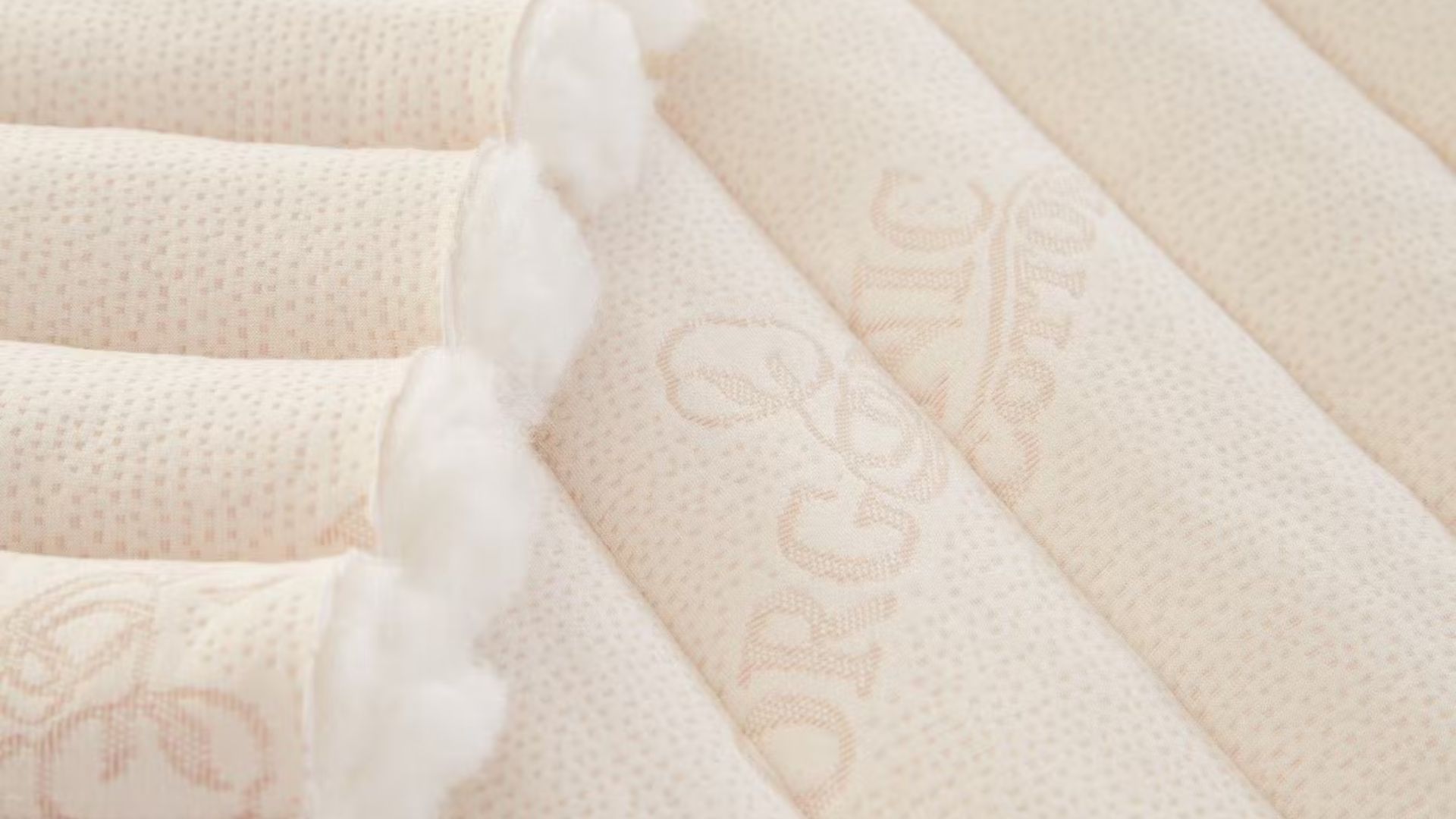
Before buying, you should make sure that the organic materials used in the mattress are certified organic. The most trusted and common organic certifications are Global Organic Textile Standard (GOTS), Global Organic Latex Standard (GOLS), and USDA Certified organic.
Organic mattresses may have other certifications that highlight how safe they are to sleep on or that they were sustainably and environmentally made and delivered. Such certifications include: Forest Stewardship Certified (FSC), Greenguard Gold Certified, OEKO-TEX, eco-INSTITUT certified, EWG Verified, MADE SAFE, and UL verified formaldehyde-free.
Why you should swap your bed out with an organic mattress
1. They are non-toxic
Organic mattresses are free of toxic chemicals like phthalates, fiberglass or formaldehyde which can contribute to respiratory problems and exacerbate conditions like ashma. It’s worth noting that most mattresses that use these chemicals are safe to sleep on as the toxic materials are contained.
Many non-organic mattresses highlight that their materials have “low VOCs” or volatile organic compounds as a means of conveying that they’re safe to sleep on. Even at low levels, VOCs vaporize and create an off-gassing of chemicals in the air. That’s what’s responsible with the smell associated with unwrapping even the best mattresses in a box and the best memory foam mattresses.
Sign up to get the BEST of Tom's Guide direct to your inbox.
Get instant access to breaking news, the hottest reviews, great deals and helpful tips.
When inhaled these chemicals can cause headaches, dizziness, nausea, and more. Organic mattresses don’t have VOCs because they’re free of harmful chemicals. In fact, the organic materials result in a hypoallergenic environment that is naturally resistant to mold, mildew, and dust mites, too.
2. They are more ethically and sustainably made
Organic mattresses are usually ethically and sustainably made. Many brands have certifications that verify that they use environmentally-friendly and consciously-sourced materials from renewable resources and often have programs that replace and expand the growth of forests.
Organic mattress companies also reduce waste and recycle and usually have ethical manufacturing policies such as paying living wages to workers. When you see certifications like Forest Stewardship Certified (FSC) and Climate Neutral Certified, it indicates that the organic mattress brand has invested in practices that help the climate and environment.
For example, our top-rated organic mattress, the Avocado Green mattress, has a long list of certifications like the Greenguard Gold, B Corp, and Climate Neutral to ensure their production processes are both sustainable and ethical.
3. They regulate temperature

If you sleep warm or hot, an organic mattress may be the best choice for you. When buying an organic mattress look out for cooling materials like latex, which is naturally more breathable than memory foam, and organic cotton and wool which do stand-up jobs in terms of moisture wicking and breathability.
This doesn’t necessarily result in a “cool” sleep environment. Instead, organic mattresses keep your temperature neutral throughout the night. This means you’re less likely to be awoken by overheating or sweating, resulting in a better sleep.
4. They last longer
Organic mattresses last longer than non-organic mattresses. Mattresses that are made with materials like memory foam or other types of foam that are synthetically made, usually last about 10 years, which is why they usually have 10-year warranties.
On the other hand, the organic and natural materials in organic mattresses break down much slower because they’re free of chemicals. Materials like natural organic latex also tend to hold their shape for longer. Some organic mattresses can last 20 years or more, which is why we see so many organic mattress brands offering lifetime or longer-term warranties.
3 organic mattresses I recommend
Essentia Stratami mattress: from $2,915 at Essentia
Not only is it supportive enough for back and stomach sleepers, the Essentia Stratami has excellent motion isolation and will keep you cool through the night. I slept well on this mattress and was supported on all areas of my body by the buoyantly, medium-firm surface. Take note that it may be too firm for side sleepers, and there are only two height options that are both under 10 inches. Unfortunately, the Essentia Stratami is steeply priced, with a queen costing $3,850. You'll get a 120-night trial period, free shipping and a 20-year warranty. Read our full Essentia Stratami review to find out more.
PlushBeds Botanical Bliss Organic Latex mattress : was from $2,649 $1,299 at PlushBeds
The PlushBeds The Botanical Bliss Organic Latex Mattress does a great job on pressure relief. It’s firm enough to sleep on your back and stomach, and somehow soft enough for side sleepers, too. While it’s considerably hard to move and has poor edge support, this organic mattress is completely biodegradable and comes with a more reasonable price than the Stratami. A queen size mattress is currently $1,799 (was $3,149) and you'll get a lifetime warranty, free shipping and a 100-night trial. The mattress is available in three thickness options: 9, 10 and 12", and two firmness options: medium and medium-firm. Add in the breathability of the mattress and good motion isolation, and it’s well-worth the buy. See how the Botanical Bliss compares to our top-rated organic mattress in our PlushBeds vs Avocado Green comparison piece.
Awara Natural Luxury Hybrid Mattress: from $896 $549 at Awara
Back and stomach sleepers who prefer a firmer mattress should consider the Awara Natural Luxury Hybrid Mattress. The surface is cozy but also supportive of key pressure points, and it’s sure to keep your body temperature regulated. The motion isolation isn’t impressive, but it excels in edge support. Plus, it’s one of the most affordable organic mattresses with a queen currently $849 (was $1,383), and it has a 365-night trial with free returns, and a forever (lifetime) warranty. Read our review of the Awara Natural Luxury Hybrid Mattress to find out if it's the right choice for you.
Alex Temblador is a freelance mattress reviewer and writer that has extensively covered home and design for Tom's Guide, Dwell, Real Homes, Homes & Gardens, Gardeningetc., and Architectural Digest. Her travel, arts, and culture coverage has appeared in Travel + Leisure, The Daily Beast, Lonely Planet, Fodor’s, among others. When the Mixed Latine writer isn’t reviewing home products, she’s building her career as the award-winning author of two novels, Secrets of the Casa Rosada and Half Outlaw, from her home base in Dallas, Texas.
